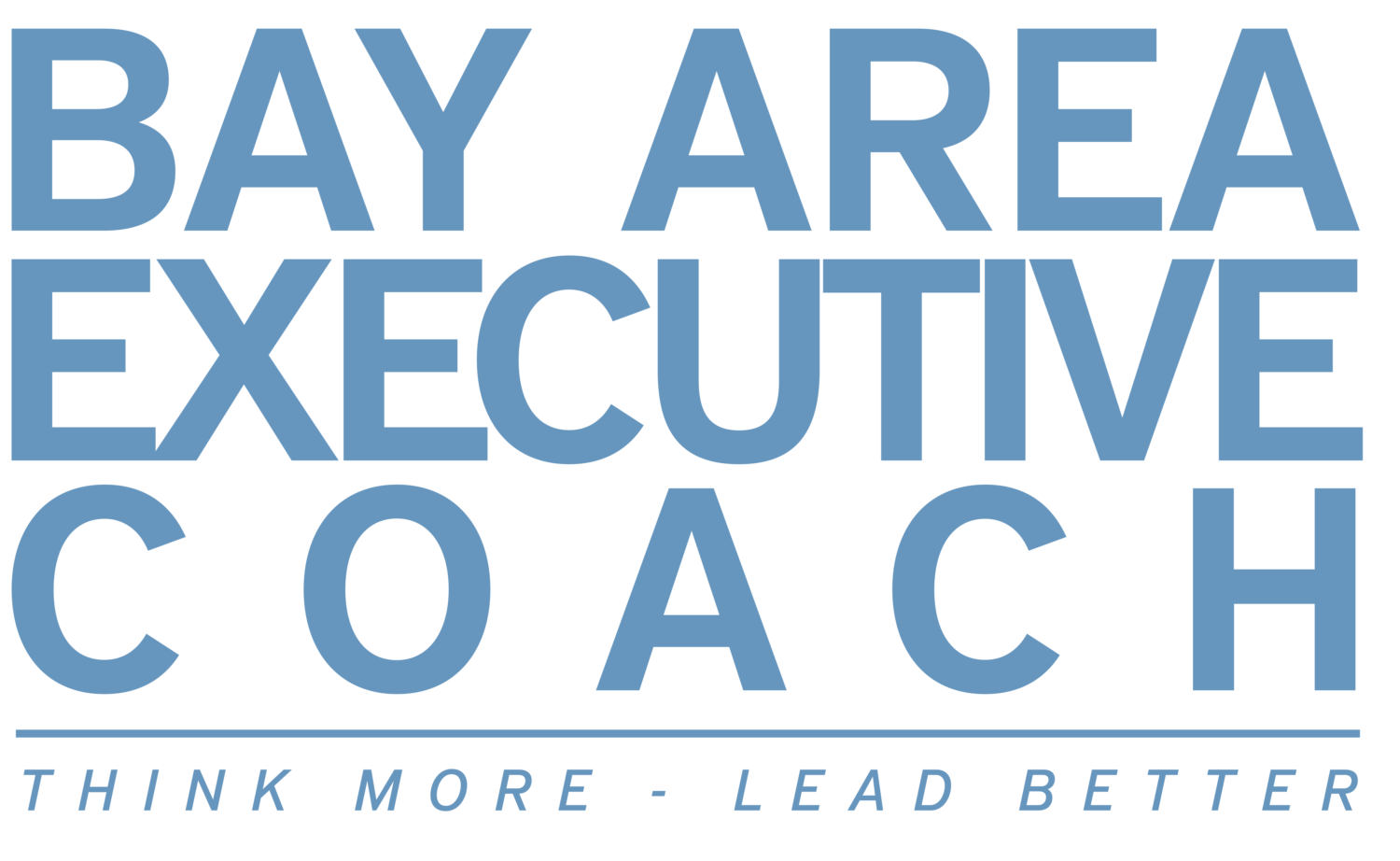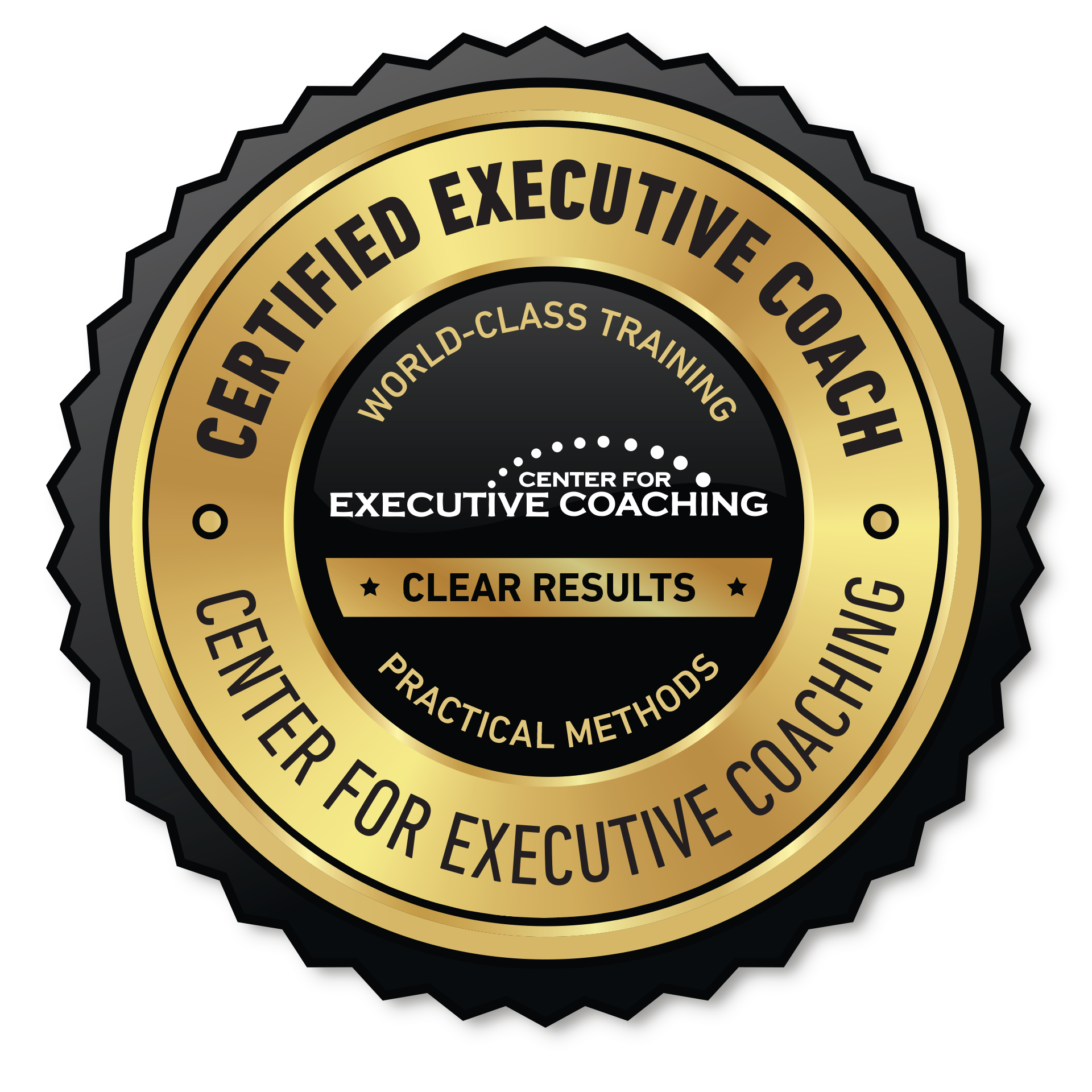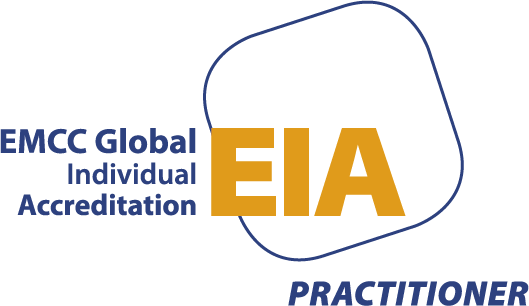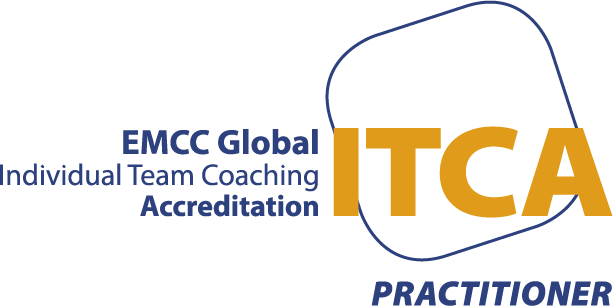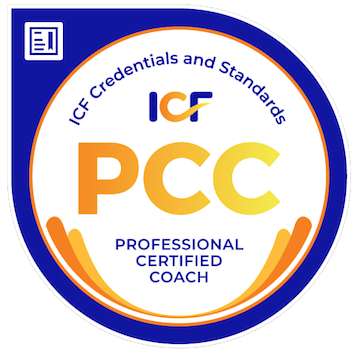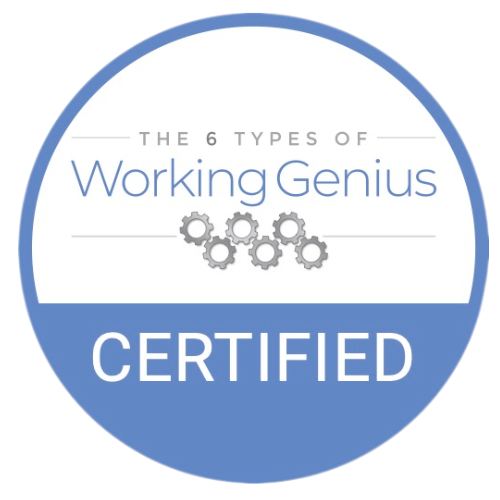When reaching to embody these traits, it helps immeasurably to have a trusted and competent executive coach to partner with on the journey. Just ask any top performer. While raw talent and burning desire are vital ingredients, good coaching and/or mentoring is essential to ultimately achieving the fullest measure of career success.
How Exactly Does Coaching Help Executives?
Executive coaching helps leaders reach their higher potential by strengthening their mindset, improving their level of emotional intelligence, honing their ability to lead while navigating conflict, elevating their communication skills, and advancing in other key areas of leadership.
At its core, executive coaching guides the coachee (the person being coached) to generate effective solutions for resolving a wide spectrum of vexing issues. These issues could include building and maintaining positive relationships with various demanding stakeholders, managing and reducing high stress, increasing one’s sense of purpose at work, building confidence, and inspiring others to do their best with a clear why putting wind behind their sails. 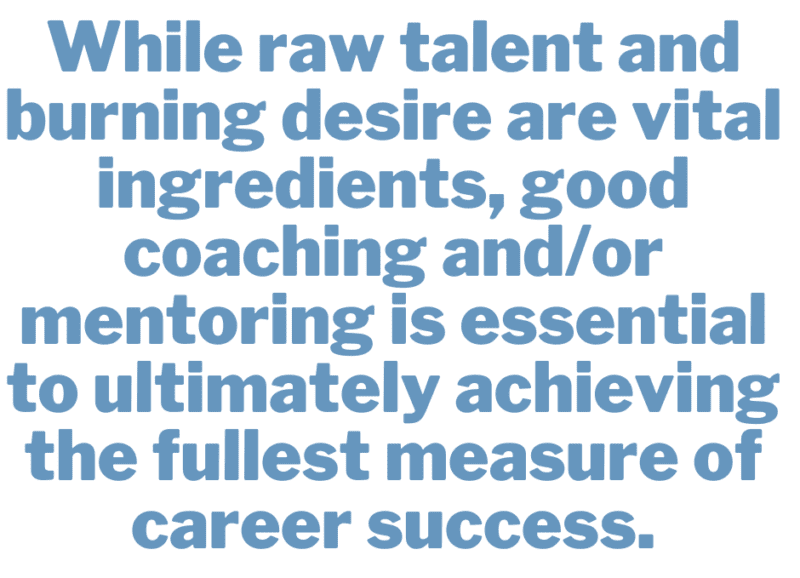
The benefits of executive coaching might boil down to one word: empowerment. Coaching can empower executives to be better leaders, and better leadership often fuels a stronger culture, which drives better business results.
How Coaching Empowers Executives
When an executive partners with a coach, they’re providing themselves with valuable tools and resources to improve performance and productivity. There are four main areas where executive coaching can pave the way to greater executive performance:
- Enhanced decision-making skills: Strong leaders make the right decisions at the right time, and a good executive coach can help executives hone their decision-making skills. By guiding leaders to analyze situations, weigh risks and benefits, and make the best use of vital information, coaches help leaders become more decisive and ultimately make more effective decisions. This progression can support clearer strategy and focused execution.
- Improved communication and collaboration: By guiding business leaders to become succinct and effective communicators, executive coaches can empower them to reduce misunderstandings and conflicts. This leads to smoother and more efficient teamwork that creates a competitive advantage over dysfunctional and unclear competitors.
- Increased employee engagement and retention: Through executive coaching, a business leader can be accountable to better delegate tasks to employees so they feel more empowered in their roles, and have a greater sense of purpose within the company. Research shows that engaged employees are more productive, innovative, and satisfied with their work. They also have a greater sense of purpose within the company. When a leader feels motivated to help their employees succeed, everyone in the company benefits.
- A champion and supporter of strong company culture. Leaders are often coached on the elements of emotional intelligence, which usually leads to more self-awareness, empathy, and awareness of others. This heightened awareness helps leaders better understand and appreciate their company’s culture, and recognize areas for improvement and ways to lead that effort. When empowered with emotional intelligence and all the elements it comprises, the executive is better equipped to build and lead successful and productive workplace cultures.
How Executive Coaching can Strengthen the Company Culture 
Executives are change agents with the power to assess the need for change and initiate it through their actions and decisions. As such, they’re also empowered to change company culture when change is needed. Great executive coaches understand the importance of company culture, and they work with their clients to uncover the strengths and weaknesses of an organization’s workplace culture. With these areas identified, change can be enacted in a positive and productive way.
Leaders who are honest, ethical, transparent, confident, trustworthy, empathetic and decisive set the standard for how a business and its employees should act in the workplace. This informal code of conduct, set by example, can be incorporated into the workplace culture to affect all aspects of employee behavior, from the CEO on down.
A company with a commitment to a strong organizational culture, bolstered by leadership’s commitment to excellence, is a company with more engaged employees, higher productivity, fewer conflicts and disgruntled employees, lower employee turnover, and high morale.
It takes time and effort to reinvigorate a stagnant or negative company culture, and the will to do so should emanate from the executive team. Executive coaching can prepare leaders to tackle that challenge and stay the course until the desired outcomes are achieved. This accountability to stay the course is an important part of executive coaching engagements that are focused on big outcomes such as changing a company culture. In conclusion, leadership empowered by executive coaching engenders vibrant company cultures.
Why do Executives Need Coaches?
People who’ve risen to the top in highly competitive industries likely already possess a great deal of smarts, confidence, and motivation. So why would such people need an executive coach?
The answer is that even the best leaders can get better, and having a coach to guide this ongoing process is a proven way of fueling such growth. By providing support and encouragement, coaches can help identify areas where an executive may have opportunity and develop strategies to improve performance. This can lead to increased efficiency and yields, ultimately improving the business’s bottom line.
There’s a misconception that executive coaches are for executives who are deficient in their leadership abilities. While it’s true that an executive coach can be brought in to help in these situations, the majority of coaching engagements are with highly competent leaders who desire to get even better or to overcome specific problems or challenges. A coach can assist these executives in these ways:
- Accountability: Even leaders with the best intentions can get sidetracked or distracted from the most important tasks at hand. Deadlines or commitments can slip or even be forgotten. A coach is there to keep executives on track and hold them accountable for what they did or didn’t do.
- Keep Sight of the Big Picture: When a leader loses sight of the “Big Picture,” a company can quickly lose its way. However, when leaders are coached, it gives them an opportunity to talk through their challenges and look beyond the small details to see the bigger, more important reality confronting them. With a renewed clarity and sense of purpose, leaders can empower their teams to achieve their goals.
- See the Truth: An executive coach is an unbiased third party who won’t tiptoe around the truth. They’re also highly trained to give feedback and engage in difficult conversations with their clients. It’s part of their job to do so. Helping leaders see the truth, free of bias or judgment, is crucial for creating a positive workplace culture and coaching can facilitate this process.
- Stay in Touch: The old saying goes “it’s lonely at the top,” and such can be the case in the C-Suite. Some executives are so far removed from their workforce that it’s difficult for them to fully understand the issues important to lower-level managers and employees in general. A good executive coach will help the executive find ways to better communicate with their staff and extended team to stay in touch with their entire organization.
- Build an Internal Cycle for Ongoing Improvement: Working with a coach can make the executive a coach themselves, which is one of the most valuable traits a leader can possess. With improved ability, clarity of purpose, communication skills, and decisiveness, coached executives create a cycle of improvement by training up the next generation of leaders rather than simply promoting them.
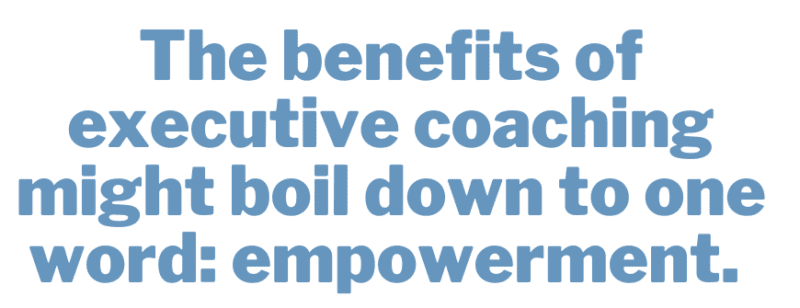 Proven Results, And We’re Ready To Help You Achieve More
Proven Results, And We’re Ready To Help You Achieve More
Executive Coaching is a proven way to develop better leadership skills that apply across all industries. A Metrix Global study found that executive coaching has a 788% return on investment (ROI) based on factors including increases in productivity and employee retention. Such statistics speak for themselves when it comes to applying executive coaching to bottom line business results.
In today’s competitive business environment, executives need to continuously improve their skills, knowledge, and performance to stay ahead of their competitors. Coaching can help executives achieve this goal by providing them with personalized guidance, feedback, and support to develop and enhance vital leadership skills.
If you’ve thought about engaging with an executive coach, we urge you to contact us or schedule a confidential conversation. We’ll be happy to answer all your questions and explain our executive coaching services in detail.
Greater success awaits you as you seize the opportunity.
Here are more resources related to this topic
Articles:
- Empowering Your Leadership Through Executive Coaching Services
- From Manager to Leader: Executive Coaching for Leadership Development
Case Study:
Videos:
- Executive Coaching Training Series Playlist on YouTube
- What is Executive Coaching?
- Executive Coaches Interview Series Playlist on YouTube
- Assessments for Executive Coaching Playlist on YouTube
- Why Executive Coaching is So Powerful!
- Executive Coaching Quick Tips Playlist on YouTube
Photo copyright: Featured photo is from ©Gustavo Fring via Pexels. Second photo is from ©Mizuno K via Pexels.
